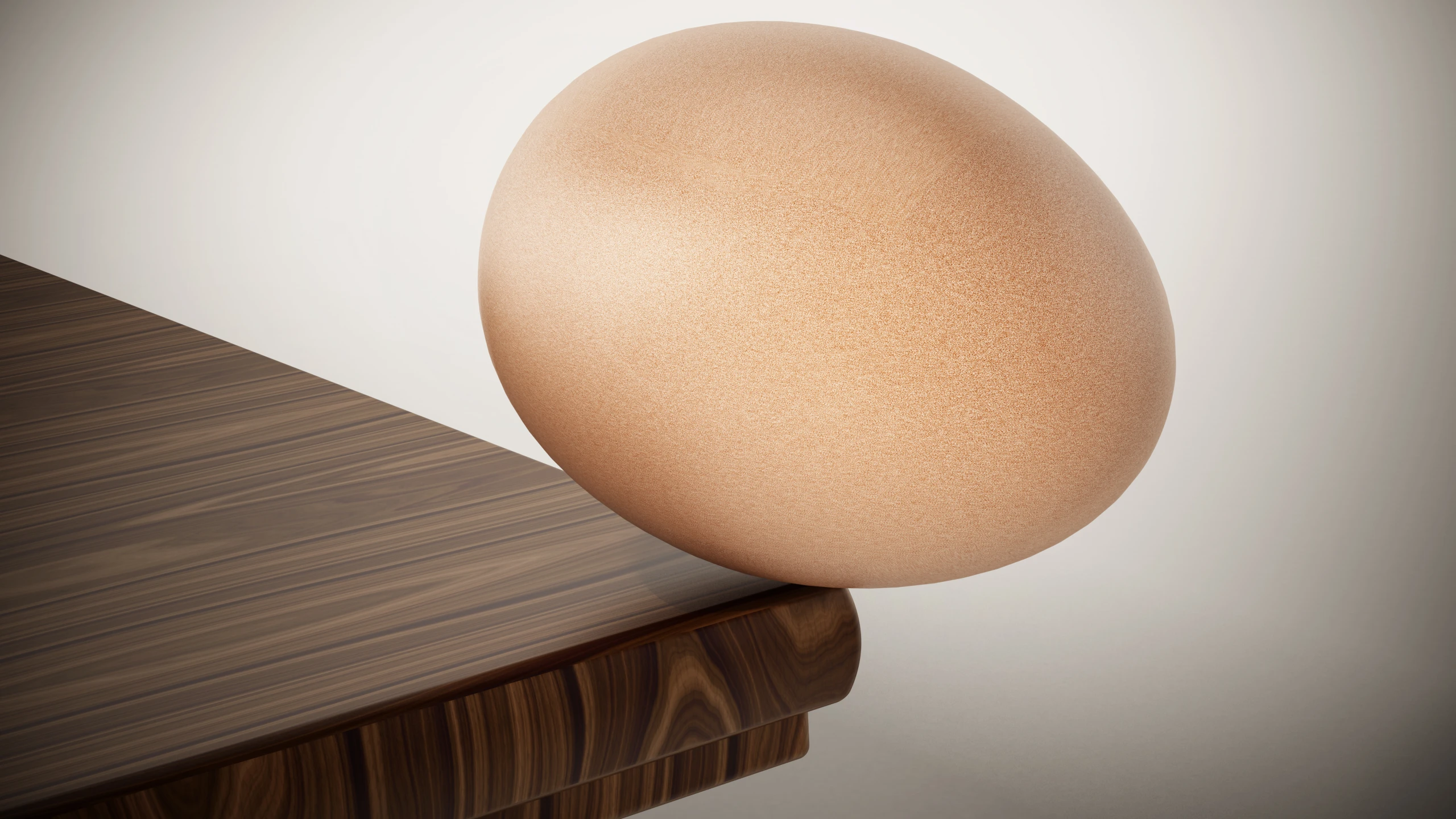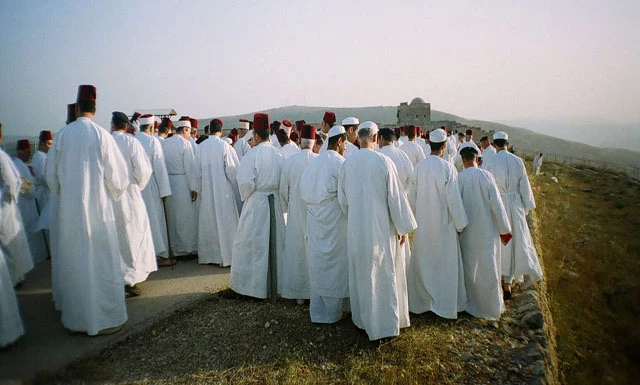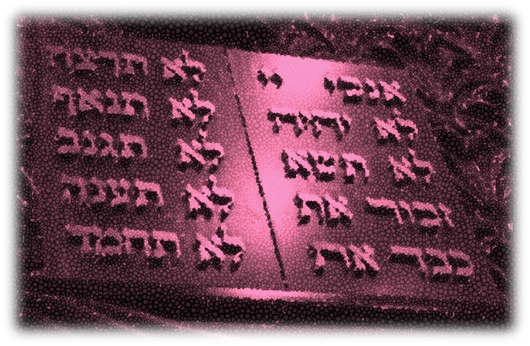The Positive Aspects of the Broken Tablets
Why Did Moshe Smash the Tablets? Why is the Passing of a Tzaddik akin to the Breaking of the Tablets?
55 min
- August 3, 2012
- |
- 15 Av 5772
Levi Garelik
1917 views- 4Comment
- Call-in
Listen to the class on the phone
Call +1 (845) 201-1933
When prompted, dial the ID number below.
339 MP3 MP4 Source Sheets - Copy Embed
A project by Sichosonline.org & MySicha.org/Vaad Lehafatzas Sichos
Class Summary:
Why did Moshe have to smash the Tablets? Why is the passing of a Tzaddik akin to the breaking of the Tablets?
Tags
Show More
Categories
Levi Garelik
- August 3, 2012
- |
- 15 Av 5772
- |
- 1917 views
A project by Sichosonline.org & MySicha.org/Vaad Lehafatzas Sichos
Related Classes
Please help us continue our work
Sign up to receive latest content by Rabbi YY
Join our WhatsApp Community
Join our WhatsApp Community














Please leave your comment below!
Anonymous -12 years ago
Luchos vs. parchment
Dear Yakov,
Thank you for your comments. I will Beezr Hashem Yisborach respond to them in the order you wrote
them, but first a short preface:
The purpose of these classes is to share with the audience the Sichos of the Rebbe. However,
it is impossible to give over a Sicha in less than 2-3 hours minimum. So I pick one of the main points
of the Sicha and share it, and then the listeners are invited to continue to study the subject from the
original, in the Likutei Sichos where they can enjoy more clarity and all the sources etc...
And now to your points:
1. You wrote, and I quote: “the tablets "lost" their sanctity”. While that is true regarding the parchment
that it “loses some sanctity”, the expression regarding the Luchos is: “Ein Bohem Mamosh”, which
means they are worthless (not only “lost sanctity”). Which explains why Moshe Rabeinu didn’t do
Gniza or just put them away, rather he “broke” them, to stress the point that "ein bohem mamosh".
The Sugya that you quote from Maseches Shabbos deals with a specific question: “matzilin min
Hadleika” – whether you are allowed to be Mechalel Shabbos, i.e. save (from a fire) a parchment that
the writing hasbeen erased from it. But that does not mean that because you are not mechalel Shabbos
for it, that the parchment lost his Kedusha, albeit not as it was before (as explained in the achronim on Halachos of Sta”m).
Therefore, the parchment and Luchos are two different concepts.
Furthermore, the difference between Chakika and Ksiva, is discussed at length in Likutei Torah of
the Alter Rebbe (in the beginning of Parshas Bechukosai and many more places), and it is explained
there that this is why Torah shebiksav is called “shebiksav” because it is written ON the parchment, as opposed to the Luchos that the letters are one entity with the Luchos.
2. Regarding the Tzadik’s passing: let’s go back to the original question: why is it that the passing of a
Tzadik is compared to the breaking of the Luchos? Why isn’t the passing of an ordinary Jew compared
to the breaking of the Luchos?
Obviously, because there is a fundamental difference between the body/soul connection of a Tzadik
to the one of an ordinary Jew. As brought in the class, the Alter Rebbe explains in Tanya (igeres
Hakodesh 27) that the life of a Tzadik is “Chayim Ruchniyim”, therefore, the body/soul connection
is unique that they became one. By an ordinary person, the Neshono is the life source of the body,
and when you take away the life source, automatically it dies. By a Tzadik, when the Neshama leaves
the body, it is sort-of a “regression” (which renders the body “worthless”) and that is what causes the
passing, just like by the Luchos. And the Tzadik, even after life, continues to go Mechayil el choyil.
That is the comparison.
Again, thank you for your comments and I wish you a Ksiva vachasima Tova.
Reply to this comment.Flag this comment.
Yaakov -12 years ago
Question
I do not see how your insight applies to the letters being engraved. Even if they were written, they add something to the parchment, the holiness of parchment of a sefer torah grows through the written words (Talmud Shabbos 116, "azli kesav azli kedusah.") Hence you can explain why the tablets "lost" their sanctity even if it was not engraved.
Please explain why you needed that extra insight.
Also, what is connection with passing of tzaddik? Are you telling me that if the body would not feel the need to maintain that level of holiness it would continue to live without a soul?
And if so, then why do regular people "die" when the soul departs? Why does the body "lose" it when the soul leaves?
You need to explain this more clearly.
Thank you for these classes and for the detailed curriculum.
Reply to this comment.Flag this comment.
Anonymous -12 years ago
Question
Rabbi Garelik,
Where is the Sicha you mentioned in passing about the argument between Rashi and Ramban if the broken luchos were in a second aron and that it went to war?
Thank you
Reply to this comment.Flag this comment.
Rabbi Levi Y Garelik -12 years ago
Re: Question
Shabos Parshas Eikev Tof Shin Lamed
Bebirchas Ksiva vachasima Tova
Reply to this comment.Flag this comment.
Isaac -12 years ago
Kabbalah Maasis
Rabbi Garelik, I think you made an error. Kabbalah Maasis does not mean explaining a verse according to Kabbalah; rather, it means using Kabbalah in a practical way, as to manipulate nature etc.
Rabbi Levi Yitzchak, just like his son, did not employ this type of Kabbalah, at least not in a public or known way.
Respectfully.
Reply to this comment.Flag this comment.
Anonymous -12 years ago
Re: Kabbalah Maasis
Isaac,
You are correct, I meant "not" kabolo maasis, rather how Kabolo explains also Pshutu she Mikro. Many people look at Pshat and Kabolo as two separate worlds, while it is amazing to see that in Reb Lev Yitzchok's expalnations many questions in Pshuto shel Mikroi are addressed through Kabolo.
Thanks for the keen observation.
Reply to this comment.Flag this comment.